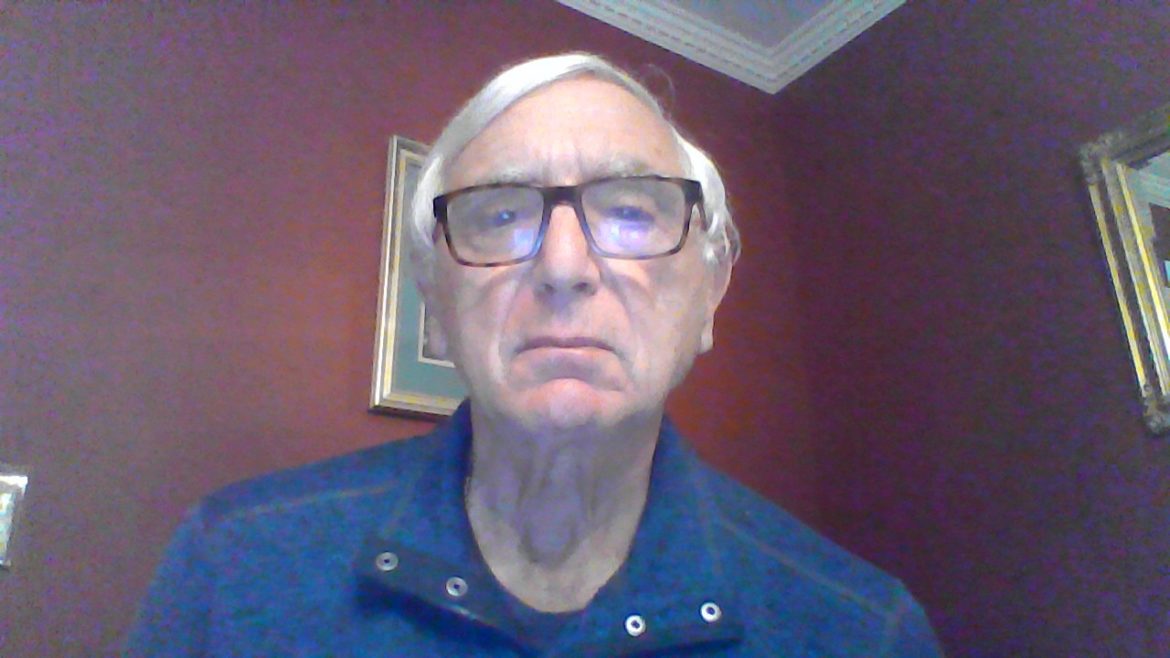By RICH DiPENTIMA,
NH’s Former Chief of Communicable Disease Epidemiology
Dear Editor:
On Nov. 12, 2021. 1,007 new cases of Covid-19 were reported by the NH DHHS, the largest number of cases in a single day since January.
Most of the cases, 657, were in children less than 18 years of age, and there were 255 hospitalized and 5 new deaths. The most recent 7-day average number of cases was 725, a 20% increase over the previous week.
There are currently 6,466 active cases in the State. To date, New Hampshire has reported a total of 144,626 cases and 1,622 deaths from COVID-19. All of these cases and deaths have occurred in less than two years, an unprecedented amount of mortality and morbidity resulting from a single infectious disease in less than 2 years in our history.
Yet despite this terrible burden of death and disease, New Hampshire is treating this epidemic like no other where there is such efficient transmission of the disease from person to person in public places. In fact, the State has taken specific steps to either prevent actions that they require with other communicable diseases, or to delegate their responsibility to implement appropriate public health control measures to non-public health entities.
The manner in which the State is responding to the COVID-19 Pandemic is inconsistent with established State law. The State policy regarding communicable diseases is contained in RSA 141-C:1 Policy, which states, “The outbreak and spread of communicable disease cause unnecessary risks to health and life, interfere with the orderly workings of business, industry, government, and the process of education, and disrupt the day-to-day affairs of communities and citizens. Because the control of communicable disease may be attained by personal actions, the timely intervention of medical practices, and cooperation among health care providers, federal, state, and municipal officials, and other groups and agencies, it is hereby declared to be the policy of this state that communicable diseases be prevented, and that such occurrences be identified, controlled, and, when possible, eradicated at the earliest possible time by application of appropriate public health measures and medical practices.”
Unfortunately, unlike any other communicable disease with this level of person-to-person transmission, disease incidence and mortality, the State has taken an approach inconsistent with its stated policy, and the manner in which it has managed other communicable disease outbreaks.
In my many years of experience in public health in New Hampshire, including Chief of Communicable Disease Epidemiology. I had been involved in the investigation and control of many disease outbreaks. These included Tuberculosis, meningitis, Hepatitis, chickenpox, measles, Pertussis, norovirus, shigella, E.coli. salmonella, and many others. In every outbreak the investigation and implementation of appropriate control measures were taken by the State Division of Public Health Services, or by the two local health departments authorized to do so.
In no case of a vaccine preventable disease was a State law passed to prohibit vaccination by government against that disease, as has been done with COVID-19.
When we had outbreaks of measles, chickenpox, or Pertussis for example, requiring vaccination for those susceptible to the disease was required unless there was a documented medical or religious exemption.
If requiring vaccination was prohibited in those cases, the outbreaks would have continued, expanded and caused many more cases, as we are seeing now with COVID-19. If there was no vaccine available, or the disease outbreak was caused by a non-vaccine preventable agent, we would order other appropriate control measures to prevent the outbreak from spreading and to end the emergency. The decision to implement the appropriate control measures was a decision made by the appropriate public health agency responsible for the investigation. In no case was the decision to implement control measures, or what type of control measures to implement delegated to non public health individuals.
If the outbreak involved a school for example, the required control measures would be discussed with the school administration as to how best to implement the measures, but the decision to implement the measures was ultimately a public health decision.
Unfortunately, with COVID-19 the State has again taken an approach that is not consistent with its stated policy on communicable disease control. Since requiring COVID-19 vaccination of children age 5 and older in public schools is prohibited by State law (the only vaccination prohibited by the State), one of the few remaining effective measures to control the spread of the disease in schools is through requiring appropriate face coverings of all students and staff while within the school building. Unlike with any other communicable disease outbreak in a school, the State has left the decision to implement appropriate COVID-19 public health control measures up to the local School Board.
While the State requires school food handlers to wear gloves when handling food, they have left mask requirements, even in the face of an expanding serious communicable disease threat, up to individuals with no public health expertise. This would not happen with any other communicable disease, let alone one causing historical numbers of cases, hospitalizations and deaths, and for which we still do not fully understand the scope of its long-term effects on those who have been infected and survive. Why?
When the history of how New Hampshire, and for that matter, the U.S.A. handled the great COVID-19 Pandemic, it will not be kind to many of those individuals in positions of authority who either shirked their duties, abdicated their responsibilities, or who took direct action to prevent or impede the actions that would save lives. They will deserve their place in infamy and disgrace.
Rich DiPentima, RN. MPH
Portsmouth, NH






